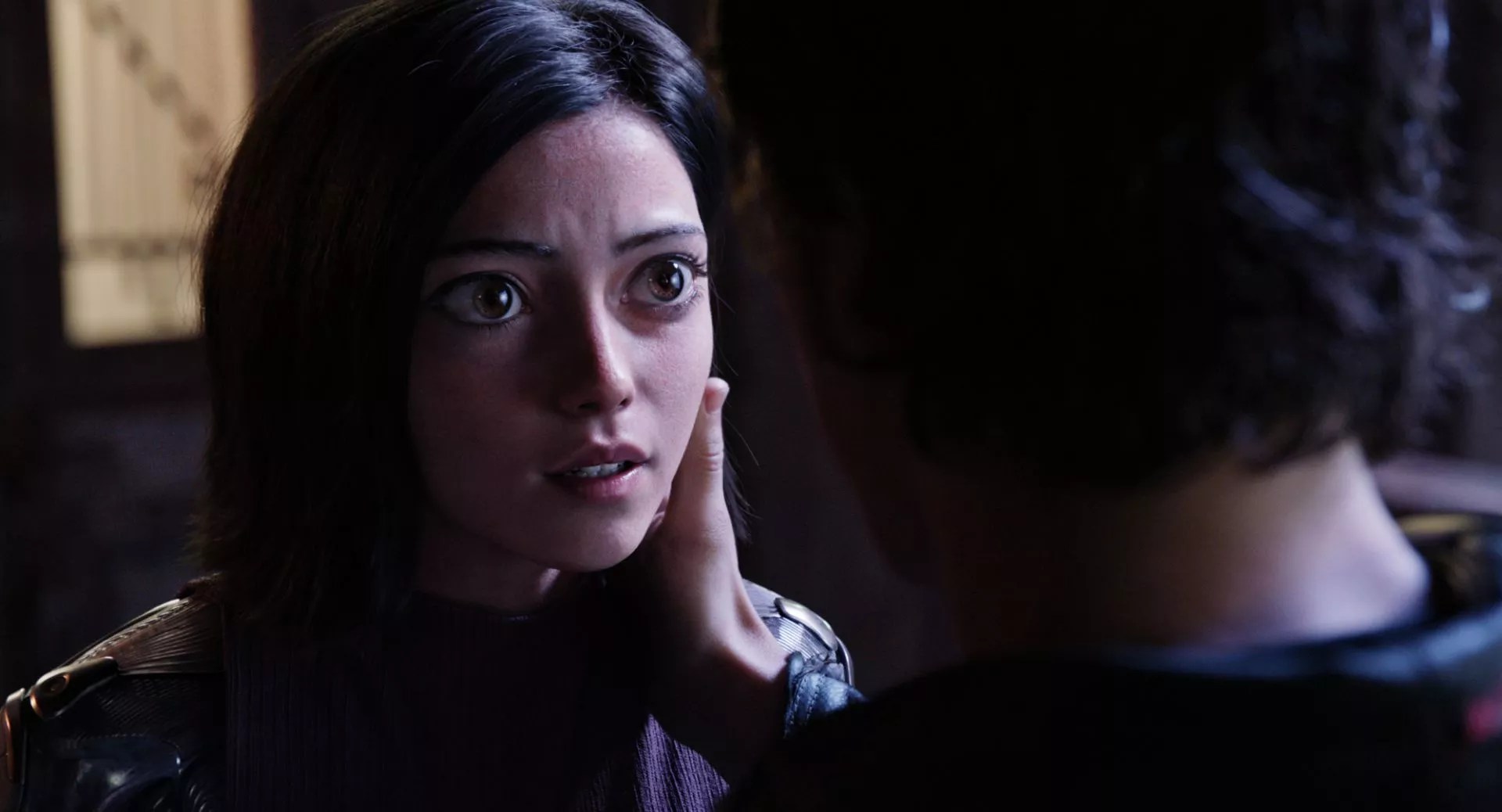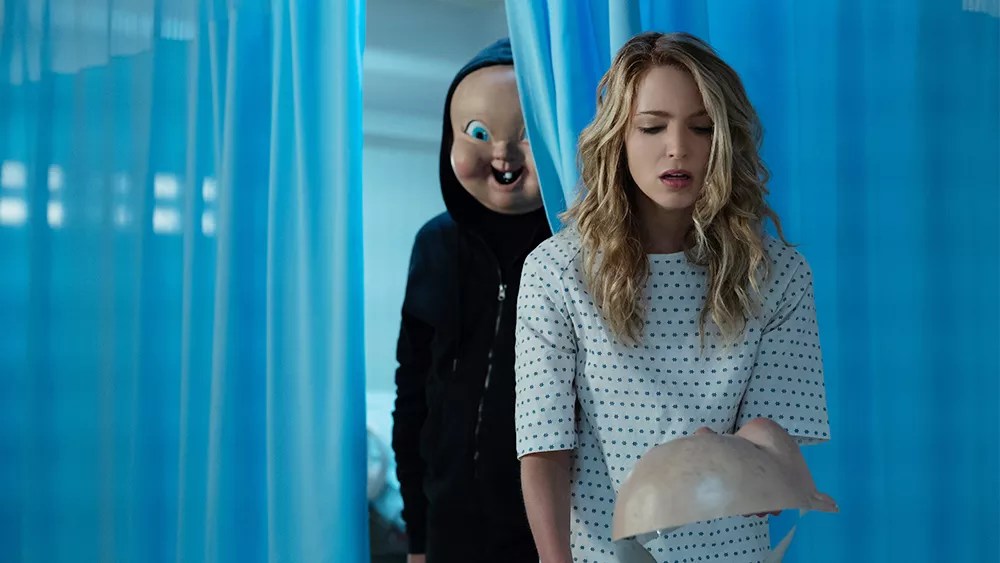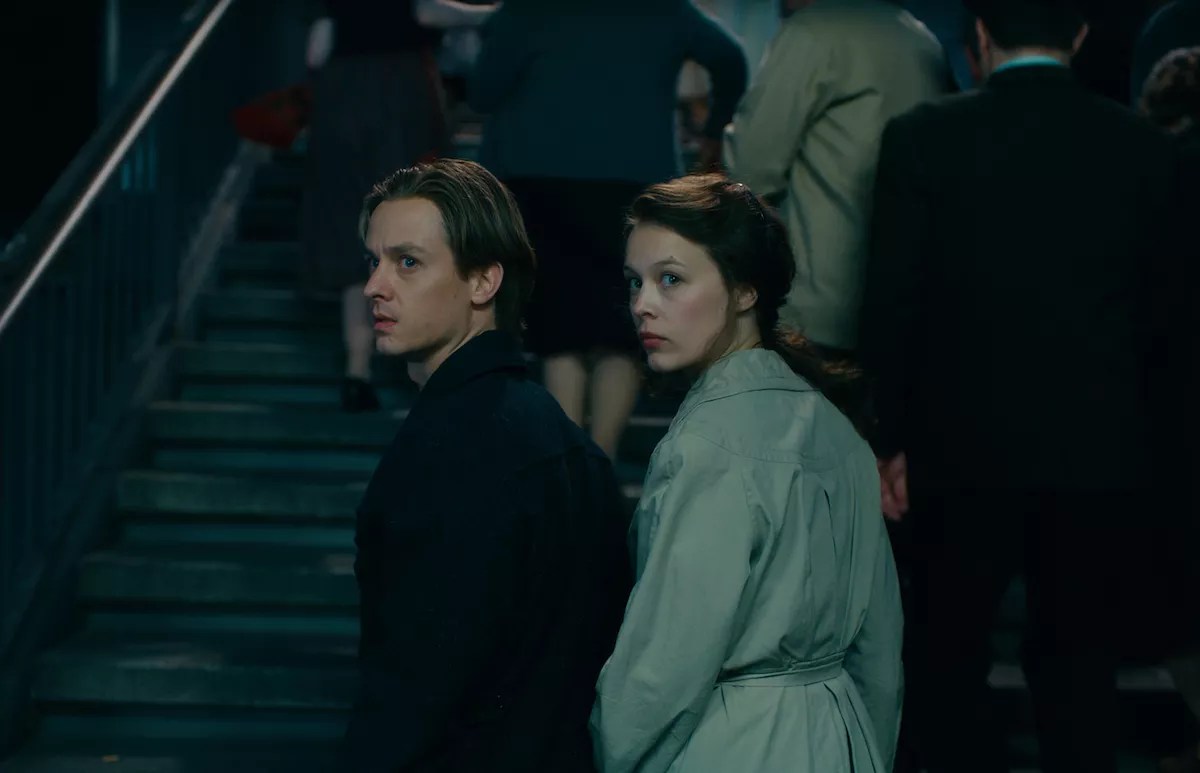
20th Century Fox

Audio By Carbonatix
Alita: Battle Angel. This is a film made up of three distinct, and sometimes conflicting, aesthetics. At its heart is Yukito Kishiro’s manga series Gunnm (or Battle Angel Alita), of which a number of chapters were chopped and rearranged by writers Laeta Kalogridis and James Cameron to create the two-hour feature. Director Robert Rodriguez brings a blend of menace and goofiness, present in a number of his films from From Dusk Til Dawn to Spy Kids and beyond. And then there are the fingerprints of Cameron, whose deep commitment to romance and sentimental tales (as seen in everything from Titanic to Avatar) can feel grating in otherwise gorgeously produced works of art.
The tale of Alita, a cyborg woman who has lost all her memories and was rebuilt by a compassionate cybernetics doctor, has a number of familiar beats, in part because it’s not a completely unique narrative and, in part, because its creators all lean into that familiarity. A number of the oddities of Kishiro’s manga make it up on screen, presented with some wonderful special effects, though some of the monstrosities within were shamefully excised.
There’s a clear love for action and for the fighting that exists on the page present in every grand set piece, unsurprising considering the presence of cinematographer Bill Pope (who shot such treasures as The Matrix and Spider-Man 2, as well as another gleeful manga adaptation, Scott Pilgrim vs. The World). Bodies that are made up of and exist as weapons flow on screen beautifully, but no special effect is greater than the performance at its very core.
In a film that can sometimes feel juvenile and features a number of popular actors, from Christoph Waltz and Mahershala Ali to Jennifer Connelly and Michelle Rodriguez, phoning it in, Rosa Salazar’s work as Alita is marvelous. The sincerity present in her eyes – in moments of fear, contempt, anger, pain, joy, and love – is undeniably compelling, enough to sell the viewer on plot points and relationships that are otherwise exhausting.
And to Kalogridis and Cameron’s credit, Alita: Battle Angel actually gives Alita more agency as a character than the comic does, tying directly into Salazar’s terrific physical performance as a woman coming to terms with a body she barely recognizes in a world she barely knows. With this, Robert Rodriguez has managed to make one of very few genuinely good adaptations of manga, joining works like Speed Racer, Cutie Honey, Oldboy, and Scott Pilgrim. We can only hope he’ll get the chance to bring more of her story to life. Opens wide Thursday, February 14. -Juan Antonio Barquin

Universal
Happy Death Day 2U. Christopher Landon and Scott Lobdell’s Happy Death Day-the slasher film in which a sorority girl named Tree relives the day of her murder over and over again-was, at its best, a mildly amusing movie that coasted entirely on a give-all performance by its lead actress Jessica Rothe.
Its sequel, Happy Death Day 2U, offers something fresh with its first 20 minutes: a supporting character from the first film is caught in his own loop, likely caused by an odd machine he and his nerd friends created. But with a malfunction, we’re back to the very same structure with the same protagonist, albeit with changes to the characterization of those around her as she’s been thrown into a parallel reality.
There was a certain charm in watching Rothe navigate her same-day life in Happy Death Day, but she and the rest of the cast (including returning actors Israel Broussard, Phi Vu, Ruby Modine, Charles Aitken, Rachel Matthews, and others) mostly feel like they’re sleepwalking through the film. The subtle misogyny of having a sorority bitch gaslit into being a better person and falling for the nerd feels more pronounced this time around, now that we know all the beats. New characters are pointless, rarely getting a chance to shine in a film with little to no interest in them, and any surprises that Landon tries to mix into 2U feel cribbed
Whatever attempts at an emotionally compelling b-plot exist within its framework are undercut by a complete lack of interest in any characters outside of Tree. Worse than his writing is some of the
In a year where Leslye Headland, Natasha Lyonne, and Amy Poehler gifted us Russian Doll, a series with the same time-loop-caused-by-death premise, it’s hard not to find Happy Death Day 2U a little exhausting and empty. Then again, it gave us Lizzo covering The Bee Gees’ “Stayin’ Alive” for its credits, so at least there’s one good thing about it. Opens wide Thursday, February 14. -Juan Antonio Barquin

Warner Bros.
Isn’t It
Rebel Wilson deserves to be recognized for her fantastic performance as the disenchanted Natalie. One day, while trying to flee a mugger in a New York City subway station she hits her head and finds herself in a dream/nightmare world of rom-com formula. Wilson threads together Natalie’s inner demons and private hopes with an earthbound quality. But as for everyone else, they’re all cardboard archetypes. Yes, this film is a parody of a rom-com that sends up those archetypes. But the filmmakers find nowhere to go from there. Natalie spends too much time in the tiresome world the film is trying to satirize, and when she’s out, her solutions are no better than any other romantic comedy.
A much stronger satire would be that 2009 subversion of the rom-com, (500) Days of Summer, whose original writing focused on that hellish place of the friend zone. But nowadays, people seem to respond to fourth-wall-breaking humor. It’s basically retreading the same old thing, but aware of itself. Despite its nonstop sly winks at itself, Isn’t It Romantic ultimately says nothing beyond putting the spotlight on the problems of the romantic comedy formula (the gay, wise friend with romantic and fashion advice but no depth of character, for instance). Just as Isn’t It Romantic hints on something original to say, it falls into its own trap. It’s fine that you can love yourself – as long as you end up in a relationship. Opens wide Thursday, February 14. -Hans Morgenstern

Sony Pictures Classics
Never Look Away. After a brief and disastrous detour in Hollywood filmmaking (2010’s The Tourist), Florian Henckel von Donnersmarck, the Oscar-winning director of The Lives of Others (2006) returns to Germany and its post-World War II scars. Never Look Away, which once again sees the director nominated in the Best Foreign Language Film category for this year’s Oscars (not to mention winner of the audience award at this year’s Miami Jewish Film Festival), covers an epic expanse of time before, during and after the war, as it ties art and inspiration to culture and ideology.
Loosely based on events in Gerhard Richter’s life, the film follows artist Kurt Barnert (Tom Schilling) from his years as a little boy (Cai Cohrs) under the influence of his art-loving Aunt Elizabeth (Saskia Rosendahl) to his time honing his own talents as a social realist painter in East Germany and beyond. He falls in love with fellow art student Ellie
Running just over three hours, Never Look Away takes a little while to get started. As it covers the beginning of the war and the terrible effect it has on Kurt’s family, it sometimes even feels a bit sentimentally contrived. However, when Kurt and Ellie begin their romance, the film finds its stride, especially after a startling revelation that connects the lovers to a time before they even knew each other. Despite the love story, the movie is more about the freeing power of art, from an era of oppression that begins with Kurt’s experience viewing “degenerate art” of “